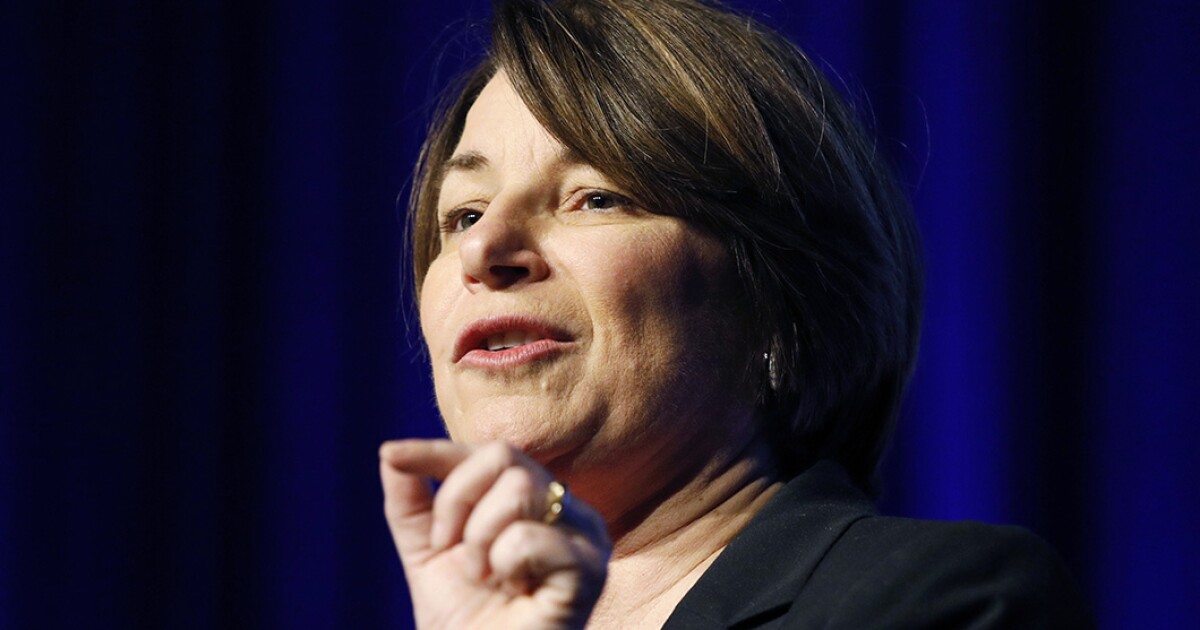

Democrats only have a few weeks left to pass Big Tech antitrust legislation before the start of the new term.
With the House set to fall into Republican hands in January, Democrats may not have enough time to resolve differences among members and pass the major bipartisan tech reform bills that have been debated over the past year, according to industry watchers.
INDUSTRY GROUPS PREPARE FOR BIG TECH INVESTIGATIONS BY GOP-LED HOUSE
“We’re not going to expect much activity,” NetChoice President Carl Szabo told the Washington Examiner, noting that the Senate will not have much time left over in the lame-duck period after working through must-pass legislation, such as bills to fund the government and raise the federal debt limit. Szabo, who leads a conservative tech advocacy organization, also noted that members of Congress are likely to try and pass “pet project bills.”
For example, Sens. Richard Blumenthal (D-CT) and Marsha Blackburn (R-TN) are pushing for the Kids Online Safety Act, a bill that provides tools and safeguards for children online, to be incorporated into larger pieces of legislation. However, these bills are minor compared to the larger regulatory pieces of legislation favored by critics of Silicon Valley.
The most significant measure with considerable bipartisan support is the American Innovation and Choice Online Act, sponsored by Sen. Amy Klobuchar (D-MN), which would allow federal antitrust agencies to issue civil penalties to Big Tech platforms, such as Amazon and Google, for unfairly preferencing their products on their platforms.
The other big bill is the Open App Markets Act, sponsored by Blumenthal, which would force app store managers including Google and Apple to allow users to download apps from third-party sources.
While Senate Majority Leader Chuck Schumer (D-NY) said previously that he intended to bring the Klobuchar bill to the floor before the end of the term, it’s unclear if the upper chamber will have time or if other measures will take priority. Schumer’s and Klobuchar’s offices did not respond to requests for comment from the Washington Examiner.
Big Tech critics are eager for legislative action.
“Antitrust is the only game in town for realistically holding big tech accountable,” Internet Accountability Project founder Mike Davis told the Washington Examiner. While Davis, a conservative legal expert and Big Tech critic, is uncertain about anything moving in the lame-duck session, he said the AICOA is a high priority.
The White House intends to lobby the Senate to pass the AICOA over the lame-duck session.
Still, Adam Kovacevich, the CEO of the liberal tech group Chamber of Progress, which opposes the AICOA, downplayed the prospects for major antitrust legislation. “I think that bill sponsors and advocates tend to overstate the likelihood of their bill moving in the lame duck,” he told the Washington Examiner.
CLICK HERE TO READ MORE FROM THE WASHINGTON EXAMINER
While the bills have some Republican support, a Republican-led House would generally be less favorable to sweeping measures empowering regulators and cracking down on tech companies, meaning that the playing field is expected to be more favorable for Silicon Valley giants in 2023.
Szabo said lawmakers should turn their focus from breaking up companies to addressing the tech recession and shrinking job market.







